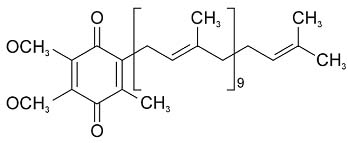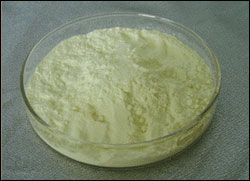| 5.0~6.0% Lycopene -HPLC | |||||||||||||
|
Lycopene
Description:
Lycopene is a carotenoid found tomatoes, and is present in human serum, liver, adrenal glands, lungs, prostate, colon, and skin. Lycopene has been found to possess antioxidant and anticancer properties in laboratory and animal studies, although activity in humans remains controversial.
Claims:
Safety:
Avoid if allergic to tomatoes or to lycopene. Due to a lack of conclusive data, avoid if pregnant or breastfeeding.
Possible side effects:
No major side effects have been reported from eating lycopene or tomato-based products. However, the safety of lycopene supplements has not been well-studied in humans.
Possible interactions:
Drugs that lower cholesterol such as lovastatin (like Mevacor®), cholestyramine (like Questran® or Prevalite®), and colestipol (like Cholestid®), as well as nicotine and alcohol. Tomato-based foods may prevent platelet aggregation and thrombosis. Herbal interactions include red palm oil.
Dosing:
No specific amounts of lycopene or lycopene-rich vegetables have been clearly established for many conditions. Therefore, no specific dosing recommendations can be made.
Adults (18 years and older):
2-30 milligrams daily by mouth has been taken daily in scientific studies.
|
|||||||||||||
Introduction
More Products





